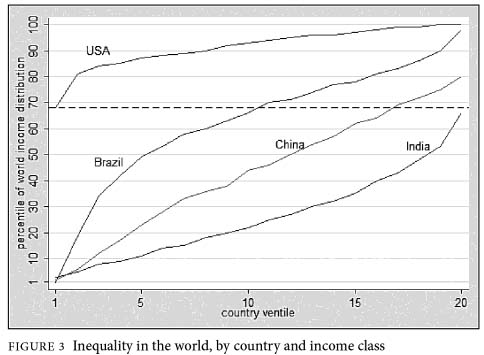I think I'm being a little misquoted here. The statement of being downtrodden didn't refer to finances, I stated it that we were never millionaires and just needed to invest wisely to make a ton of money. The downtrodden comment was more about autonomy than anything else.
We are controlled by insurance companies, we now have to compete with NPs and PAs (to a lesser extent) over who is more qualified to be the entry point to the health care system and the "the sky is falling" attitude toward government involvement in health care is that the institute of medicine and CMS will be auditing all of our patient panels for patient outcome markers and determining if we are doing a good job. There used to be a trust that Docs would work with best interest and best practice and the fact that people need to check up on the profession speaks to the degree of "swagger" that we have lost in the past few decades. Some of this is our own fault, we give clowns like Conrad Murray (the michael jackson doc) medical licenses and they inappropriately use their abilities it reflects badly on the profession and we end up with more oversight.
My biggest problem is our lack of organization, Big Pharma, Big Insurance and Hospitals all have the ear of the government. Their financial interests outweight ours in terms of both union/lobbying ability and the degree to which their participation in the economy effects our country. I wish we had more of an ability to police ourselves then be policed by Insurance (who isn't anymore honest) or government (the same).
Comparing our economic standing to the rest of the world is apples to oranges. Look at the occupy wall street movement, go there and tell them that statistic about people living on 2$ a day and see if that quells their anger. America is not any one of those nations, our poorest people would live like kings in some of those countries (see the Simpsons or Family Guy for some real life examples

). But thats not where they live, they live in America where the cost of living can be quite high we are taxed by not only at the national but also at the state level (is this an issue in Europe? I don't know if you pay county and national taxes that would be an interesting comparison). Yeah people complain about not having the latest tech or newest car but you can't expect people to react in one socioeconomic reality as though they were living in a completely different one.
The pressure of being a 1st world nation are different from living in China or South America, we live longer we have higher expectations for our children our parents live longer and we need to care for them. Do you require car insurance and emissions checks in some low income regions, is a cell phone a requirement to be effective at your job; these are all the expenses that come with being successful in America. Yes there is a lot of bull**** that we want, with clothes and cars and technology, but its expensive to raise kids in America (kids that maybe just work for the family business or farm in countries you have cited, or sadly die) its expensive to get old (again these people die in some of the places you mentioned, some by choice rather then burden the structure of their society). No one said that there would be no food on the table if you are a doctor, but the reality is that its harder and harder to hold on to the middle class distinction (which most health care used to be firmly entrenched in) some docs get super rich and some struggle to get by, and we need to give our kids even better opportunities to maintain the middle class because of the disparity between the top 5% vs the 95% and the top 1% vs the top 5% has grown steadily.
The whole American Dream story (which I have thankfully been a part of) is walking the edge of a knife right now and it is intellectually dishonest to compare struggles here with a country who limits families to one child and a country riddled with leprosy, starvation and poverty. The example I like to use is that of my parents telling me to clear my plate when I was a child because there were starving children in Africa, the kids in Africa were never gonna get that food so why should I clear the plate, and clearing the plate when I wasn't hungry just makes more issues like childhood obesity. We are not China, we are not India we are America for better or for worse and comparing ourselves with other nations should not be our focus because there are real financial problems here which will effect those smaller countries and throw them into even more turmoil.
I'm sorry about all of the long posts I hope they are for good discussion, the lack of work in 4th year has made me pedantic. I'm going over to the meme thread lol.


 , or to get extra money. Also, residents are not paid for on-cal time are they
, or to get extra money. Also, residents are not paid for on-cal time are they  ?
?